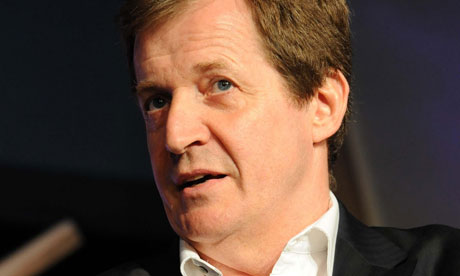Meanwhile this just in from The Daily Beast. Makes depressing news:
In 2009, a month after ethnic riots rocked the Ugandan capital of Kampala, an evangelical lawmaker named David Bahati introduced his Anti-Homosexuality Bill into parliament. The measure was draconian, prescribing the death penalty for some gay people, mandating prison sentences of at least five years for the “promotion of homosexuality,” and requiring Ugandans to report “offenders” to the authorities. After an international outcry, President Yoweri Museveni distanced himself from the bill, and it seemed likely to disappear.
 Children demonstrated against homosexuality in Kampala, Uganda, in January of 2010. (Stephen Wandera, File / AP Photo)
Children demonstrated against homosexuality in Kampala, Uganda, in January of 2010. (Stephen Wandera, File / AP Photo)Then, this month, it came roaring back, and it could pass by the end of the week. Although some media outlets are reporting that Bahati has dropped the death-penalty clause, no revised bill has surfaced yet. “As far as we know, as of today, parliament was still discussing the same version,” Maria Burnett, a Uganda-based senior researcher for Human Rights Watch, said on Wednesday. “While the author of the bill has said he was willing to make amendments, I’ve never seen an actual document with those amendments made.”
Even if capital punishment is removed from the bill, its passage would herald extraordinary state persecution of a demonized and beleaguered minority. Already, some Ugandan newspapers have taken to publishing lists of alleged gays and lesbians with blaring headlines like “Hang Them!” and “Homo Terror!” The bill is the culmination of an anti-gay campaign that’s been waged in Uganda for more than a decade. Because some American evangelicals have played a major role in that campaign, they’re at least partly responsible for what is happening now.
Read the rest of the article here.
And this from the Guardian:
Iraq dossier drawn up to make case for war – UK intelligence officer
 A top military intelligence official has said the discredited dossier on Iraq's weapons programme was drawn up "to make the case for war", flatly contradicting persistent claims to the contrary by the Blair government, and in particular by Alastair Campbell, the former prime minister's chief spin doctor.
A top military intelligence official has said the discredited dossier on Iraq's weapons programme was drawn up "to make the case for war", flatly contradicting persistent claims to the contrary by the Blair government, and in particular by Alastair Campbell, the former prime minister's chief spin doctor.In hitherto secret evidence to the Chilcot inquiry, Major General Michael Laurie said: "We knew at the time that the purpose of the dossier was precisely to make a case for war, rather than setting out the available intelligence, and that to make the best out of sparse and inconclusive intelligence the wording was developed with care."
His evidence is devastating, as it is the first time such a senior intelligence officer has directly contradicted the then government's claims about the dossier – and, perhaps more significantly, what Tony Blair and Campbell said when it was released seven months before the invasion of Iraq in 2003.
Laurie, who was director general in the Defence Intelligence Staff, responsible for commanding and delivering raw and analysed intelligence, said: "I am writing to comment on the position taken by Alastair Campbell during his evidence to you … when he stated that the purpose of the dossier was not to make a case for war; I and those involved in its production saw it exactly as that, and that was the direction we were given."
He continued: "Alastair Campbell said to the inquiry that the purpose of the dossier was not 'to make a case for war'. I had no doubt at that time this was exactly its purpose and these very words were used."
Laurie said he recalled that the chief of defence intelligence, Air Marshal Sir Joe French, was "frequently inquiring whether we were missing something" and was under pressure. "We could find no evidence of planes, missiles or equipment that related to WMD [weapons of mass destruction], generally concluding that they must have been dismantled, buried or taken abroad. There has probably never been a greater detailed scrutiny of every piece of ground in any country."















0 comments:
Post a Comment